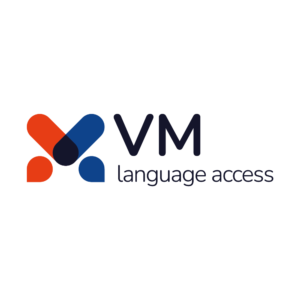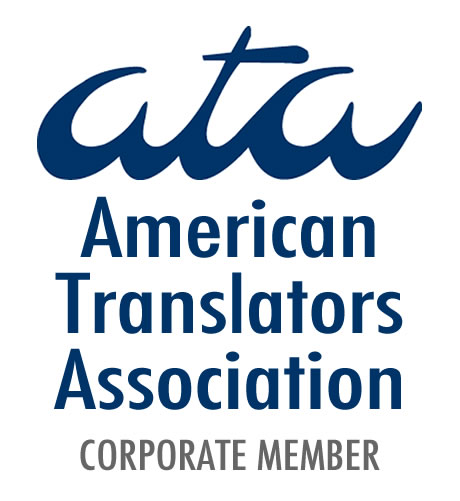
How to Learn Languages Faster for Professional Development
If you’re diving into the world of translation or interpretation, or just aiming to boost your career by adding a new language to your toolkit, you probably want to know: how to learn languages faster? It’s a question many professionals ask, especially when juggling busy schedules. Learning a language quickly doesn’t just mean memorizing vocabulary; it means effectively breaking language barriers so you can confidently communicate and succeed in your field. Let’s walk through practical, easy-to-follow strategies that will speed up your language learning journey, improve your skills, and give you a real edge in professional development.
Why Learning Languages Faster Matters for Your Career
You might wonder why the speed of learning matters so much. In today’s global economy, being multilingual is more than a bonus — it’s often a requirement. Whether you’re a translator, interpreter, or work in any profession that requires cross-cultural communication, the ability to quickly pick up a new language opens doors. Not only can it help you connect with clients or colleagues from different backgrounds, but it also increases your marketability and opportunities for growth. The faster you learn, the quicker you can break language barriers and truly engage in meaningful conversations.
Understanding the Basics: What Influences Language Learning Speed?
Before jumping into the techniques, it helps to understand what affects how fast you learn a language. Everyone learns differently, but several factors play a role in speeding up or slowing down your progress:
Motivation and Goal Setting
Having a clear reason for learning a language keeps you driven. Are you aiming to work in healthcare interpreting? Translate technical manuals? Or simply improve your résumé? When your goals are specific and meaningful, your brain focuses better and you retain more.
Consistency and Practice Frequency
Learning a bit every day beats cramming once a week. Regular exposure helps your brain absorb and retain language patterns, vocab, and grammar faster.
Quality of Exposure
Not all language exposure is equal. Passive listening is good, but active engagement — like speaking or writing — cements learning much better.
How to Learn Languages Faster: Proven Techniques
Alright, now that we understand what affects your pace, let’s explore the best ways to accelerate your language acquisition without burning out.
1. Immerse Yourself as Much as Possible
Immersion is one of the fastest ways to pick up a language. This doesn’t mean you have to move to a foreign country — although that’s ideal! You can create immersion right where you live:
- Switch your phone and apps to the target language.
- Watch movies, TV shows, and YouTube videos without subtitles.
- Listen to music and podcasts.
- Change social media feeds to content in your new language.
The goal here is to surround yourself with the language so it becomes part of your daily life. This steady immersion helps break language barriers naturally.
2. Use Spaced Repetition Systems (SRS)
One secret weapon many successful language learners swear by is spaced repetition — reviewing vocabulary and phrases just before you forget them. Apps like Anki and Memrise use this technique to help you learn efficiently without overload.
When you regularly review flashcards or vocabulary lists, you embed the words deep into your memory, speeding up recall during translation or interpretation tasks.
3. Practice Shadowing and Active Listening
Shadowing is a fun and effective way to improve pronunciation, fluency, and comprehension. It involves listening to a native speaker and repeating what they say immediately after or along with them. This trains your ear and tongue to the rhythm and sounds of the language.
Active listening means you’re not just hearing words but engaging with meaning, tone, and context. Try listening to short clips and summarizing them out loud to practice this skill.
4. Speak Early and Often
Many language learners hesitate to speak out of fear of mistakes. But speaking is crucial to faster learning. Find language partners, tutors, or conversation groups to practice regularly. Even talking to yourself in the target language about your day can help!
Breaking language barriers isn’t just about understanding but also expressing yourself confidently.
5. Leverage Multimedia Tools
Incorporate a mix of media: videos, apps, podcasts, and language games keep learning fresh and engaging. Tools like Duolingo, Babbel, or Pimsleur offer structured lessons, while YouTube channels provide real-life dialogues and cultural insights.
Variety helps maintain motivation and strengthens different language skills simultaneously.
How to Incorporate Language Learning Into Your Professional Development
It’s one thing to learn a language for fun, but how do you tie it into professional growth? Here are some tips to make language learning part of your career path:
- Set clear professional goals for your language skills, like interpreting at meetings or translating specific documents.
- Practice translation or interpretation exercises related to your field.
- Join online forums or groups for translators and interpreters to exchange tips and get support.
- Attend webinars or workshops focused on language skills in professional contexts.
The more you link learning to real work scenarios, the faster you’ll progress and feel ready for new challenges.
Overcoming Common Language Learning Challenges
Let’s be real: learning a language fast isn’t always smooth sailing. You might hit plateaus or feel overwhelmed. Here’s how to stay on track:
- Avoid burnout by pacing yourself and mixing different types of learning.
- Celebrate small wins to keep motivation high.
- Don’t be afraid to make mistakes — they’re part of the learning process.
- Regularly track your progress with journals or apps to see how far you’ve come.
Persistence is key when breaking language barriers for professional success.
The Impact of Faster Language Learning on Breaking Language Barriers
Faster language learning doesn’t just help you memorize vocabulary or grammar — it builds your confidence to communicate effectively. For translators and interpreters, this means better accuracy, fluidity, and cultural understanding, which are essential when working with diverse clients and complex content.
By learning languages faster, you position yourself as a valuable professional who can handle multilingual communication challenges and help organizations expand globally.
Mastering a language quickly is an achievable goal with the right approach. Remember, it’s not about rushing but about smart, consistent strategies that break language barriers and enhance your professional capabilities. Keep immersing, practicing, and engaging with your target language, and you’ll find yourself reaching new heights in your career.
Learning languages faster isn’t just a skill — it’s your gateway to a world of new opportunities.











